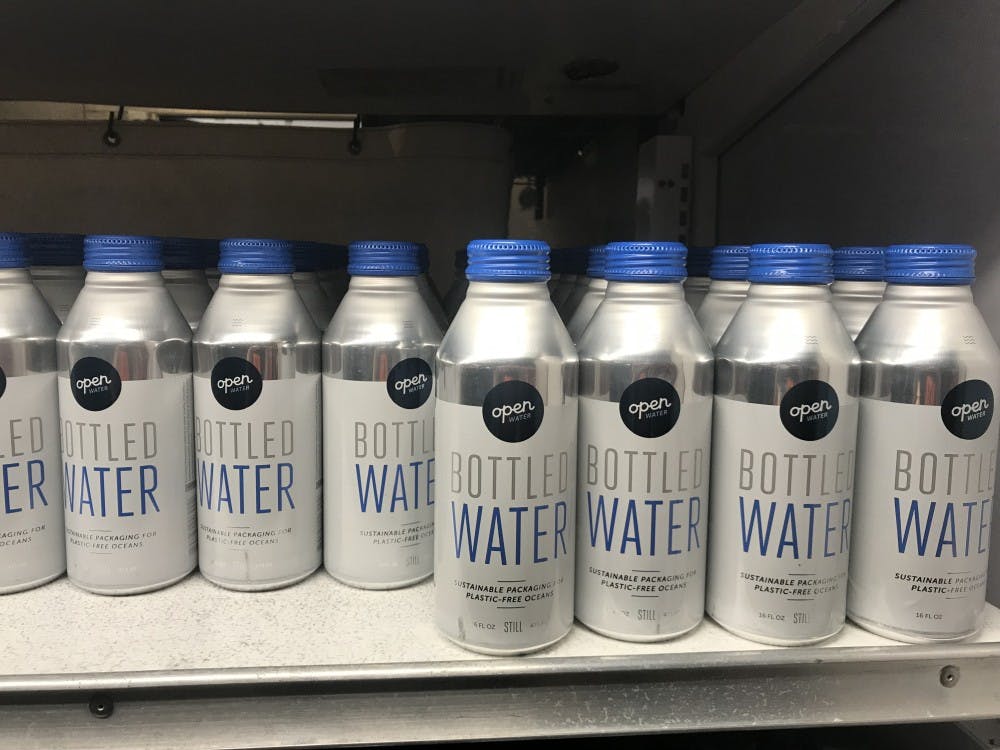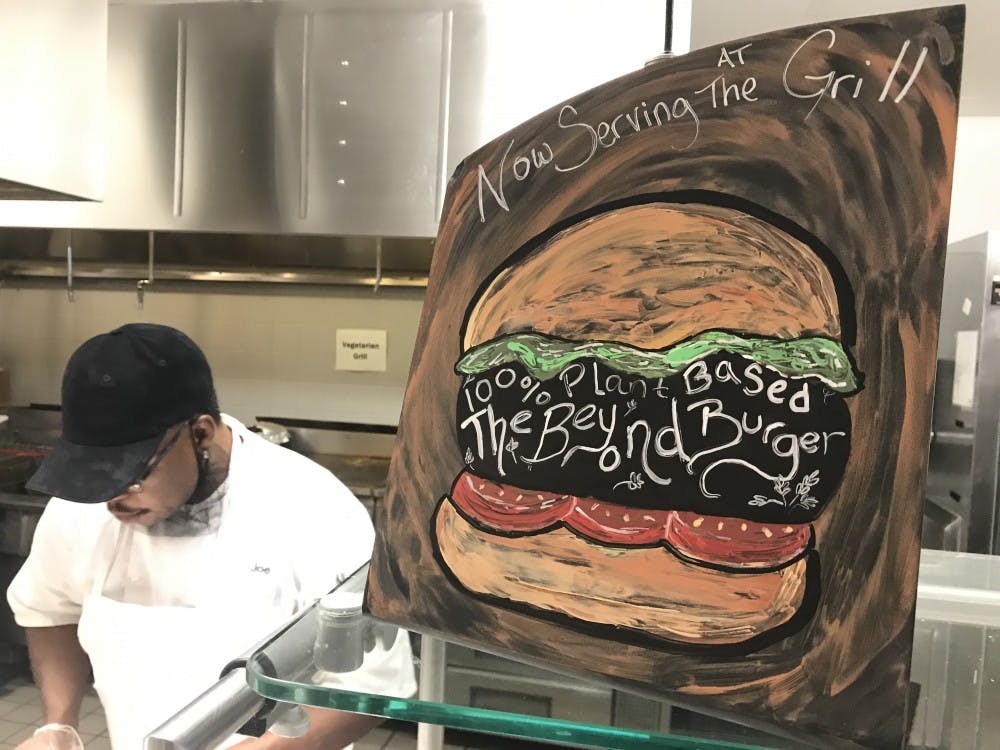As Campus Dining continues to look for more sustainable options, they have implemented certain changes at the Frist Campus Center Gallery. Most immediately noticeable are the “Open Water” aluminum water bottles, which have replaced the short-lived Boxed Water brand.
“We have been moving from plastic water bottles for two years now,” Chris Lentz, Campus Dining’s associate director of marketing and community engagement, explained. “We started with boxed water, and mostly based on feedback from staff, students, and faculty, ended up switching over to aluminum.”
The benefits of aluminum are twofold: the material is infinitely recyclable, and, with their screw top containers, the bottles can also be reusable.
“You can get a lot of life out of them,” Lentz said.
While the reusability was one of the key advantages of the aluminum bottles, many students continue to dispose of them, often because they do not consider alternatives.
“I really like the new aluminum bottles, but I wish I had some information on their reuse,” Fiorella Barreto GS said.
“I am happy about the new aluminum, because the boxed water tastes like cardboard,” Jackie Chu ’22 remarked, indicating that the benefits of the new bottles extend beyond sustainability concerns.

A new addition to Frist Gallery, Open Water bottles replace last year’s Boxed Water.
Photo Credit: Zack Shevin / The Daily Princetonian
Another, though currently less public, switch was the addition of the Beyond Meat Burger at the Gallery’s grill. Beyond Meat, a Los Angeles based company founded in 2009 by Ethan Brown, creates alternatives to meat products using plant-based proteins.
The company’s mission, as stated on their website, is to create an appetizing alternative to meat products “that solves for growing issues attributed to livestock production: human health, climate change, constraints on natural resources and animal welfare.”

“We are doing a tasting and full announcement of the Beyond Meat next week,” Lentz said. “The reason we haven’t put it out there yet is that we wanted to get a little bit of feedback, put it out there, get a sense of how many people want it and whether people like it.”
While there was a tasting a week ago, accompanied by a post on Campus Dining’s Instagram page, there will be a more “official” announcement this Wednesday in the form of posters and a tasting. In addition to being offered at the Gallery, the burger will also be offered at concessions at sports games.
“I was really happy when I found out about the Beyond Burger because I am vegan and while there are options at late meal, there is less variety,” Pooja Parmar ’22 wrote to The Daily Princetonian in a message.
Although the new option is exciting for vegan students, most students who spoke to the ‘Prince’ during late meal had never tried the burger, nor were they even aware that it was an option.
Finally, in addition to these food-related switches, the Gallery has renovated the waste disposal area to make it more user friendly. There are now clearly marked bins: “food waste only” or “trash only.”
The Office of Sustainability, while involved in the details of this new system, deferred comment to Chris Lentz at Campus Dining when contacted by the ‘Prince.’
“We are really committed to keeping a clean waste stream… anything that has food contamination on it can disrupt recycling” Lentz said, explaining why it is so important to have clearly marked disposal bins.
Additionally, all food waste is now being diverted to the Office of Sustainability’s biodigester.
“We have been doing that in the back of the house [the kitchen] for well over a year now and the challenge at the front of the house was that everything was going everywhere,” Lentz explained in reference to diverting to the biodigester. “If one student or one staff member decides that they don’t care and they contaminate it, they then it makes it really difficult.”
Since the biodigester requires an immaculately clean waste stream, there was initially some hesitation about using it. But with the clear labeling as well as the sealed lid, the new set up seeks to avoid this problem. The dining officer receives feedback whenever some unwanted waste — like a pair of chopsticks — gets caught in the biodigester. The compost from the rest of the dining halls on campus is sent to an outside company called Organic Diversion, since the biodigester has a limited capacity.
“If anyone has feedback, we would love to hear it,” Lentz said. “A lot of the changes come from the cycle of doing it, and then receiving feedback.”
In addition to feedback, Lentz added, students can help sustainability efforts by heeding the waste disposal instructions, opting for silverware instead of disposable utensils, and using refillable water bottles whenever possible.








